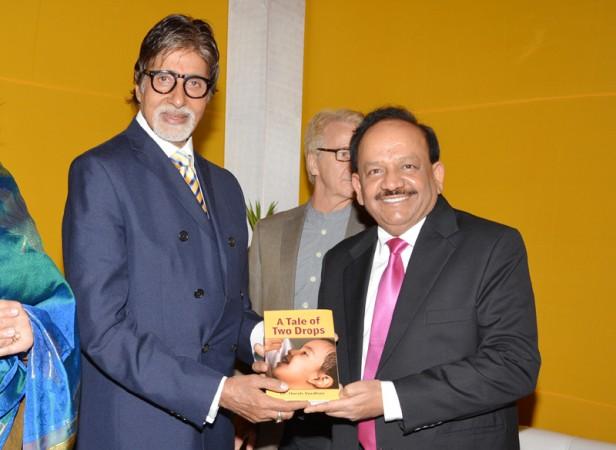
Indian corporate sector should help the Union government to provide toilets to every family under a national project, stated Union Health Minister Harsh Vardhan on Monday.
Vardhan pointed out that an endeavour on such an extensive scale has not been attempted by the previous governments. The minister said that providing a toilet to every household in the country is Prime Minister Narendra Modi's wish.
"Our Prime Minister has pledged to stop the practice (open defecation)," the minister said while inaugurating the ministry's first ever Intensified Diarrhoea Control Fortnight (IDCF) in Delhi.
The Corporate Social Responsibility (CSR) funds of companies could help make the Prime Minister's wish a reality, Vardhan stressed. The government has placed unprecedented emphasis on out-of-the-box solutions to long-standing problems, he added.
The fact that India's health administrators failed to spread mass awareness on diarrhoea management speaks volumes of the inefficiency of previous programmes, the minister said. Therefore, it is time to think up novel communication vehicles.
Diarrhoea kills more than 1.36 million children annually, the third biggest cause of child mortality, he noted.
"We don't have forever to bring down the death rate. By September 2015 we have to meet the United Nations Millennium Development Goals. I have therefore called for large scaling pooling of synergies to challenge the scourge of child deaths," the minister said.
Vardhan stated the plan is to mobilise health personnel at both central and state levels and from the volunteer sector, to give momentum to diarrhoea control measures. It is essentially a set of activities which include enhancing advocacy, step up awareness generation, establish more Oral rehydration Solution (ORS)-Zinc corners, enthuse ASHA volunteers to reach Oral Rehydration Solution packets to families with children, as well as detect children in need of treatment, the minister revealed.
He appealed to mothers not to stop breastfeeding children under six months with diarrhoea symptoms. This is covered under IDCF's programme of spreading knowledge of best practices of infant and child feeding.
Elaborating on the programme through a presentation, Dr Mathuram Santosham of John Hopkins University, Maryland, USA and Dr Rakesh Kumar, Joint Secretary in the Health Ministry, said that intensified community awareness campaigns on hygiene and age-appropriate childhood feeding practices and promotion of ORS and Zinc Therapy will be conducted in the state, district and village levels.
Louis-Georges Arsenault, UNICEF's India Representative, felicitated the ministry for organising IDCF, saying it would re-energise India's efforts to prevent child deaths in the country by increasing access to life-saving interventions.
"Many children in the developing world cannot access urgent medical care for severe illnesses for want of hygiene, sanitation, safe drinking water and exclusive breast feeding. These should be the critical components of diarrhoea control," said Dr Nata Menabde, World Health Organisation's chief in India.
Absence of indoor toilets leads to crimes against women
Absence of indoor toilets at homes of the poor, especially in rural India, has led to heinous crimes against women. Recently two young girls were raped and murdered in a small village in Uttar Pradesh when they went outside their homes to use the toilet, because their mudbrick huts had no indoor facilities.
"The situation not only highlighted the treatment of women, it also drew focus to the lack of sanitation for the poor in India, where more than 70 percent of the population don't have access to proper toilets," an ABC News report said.

















